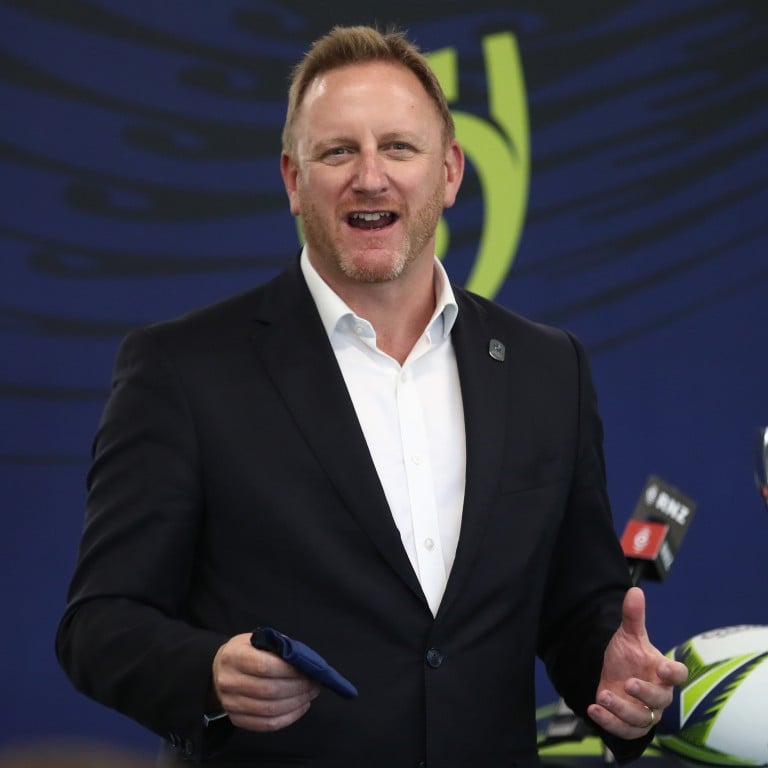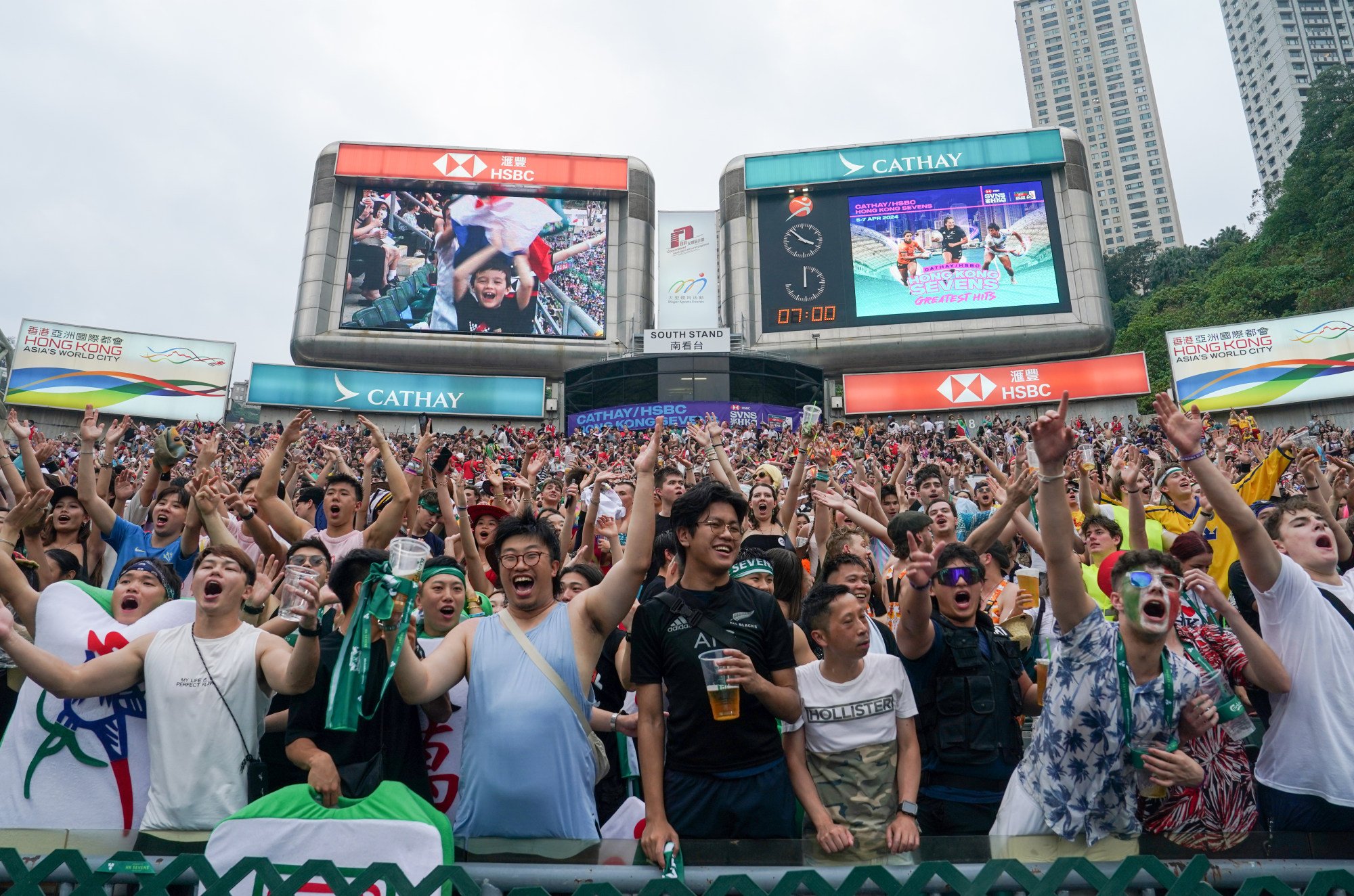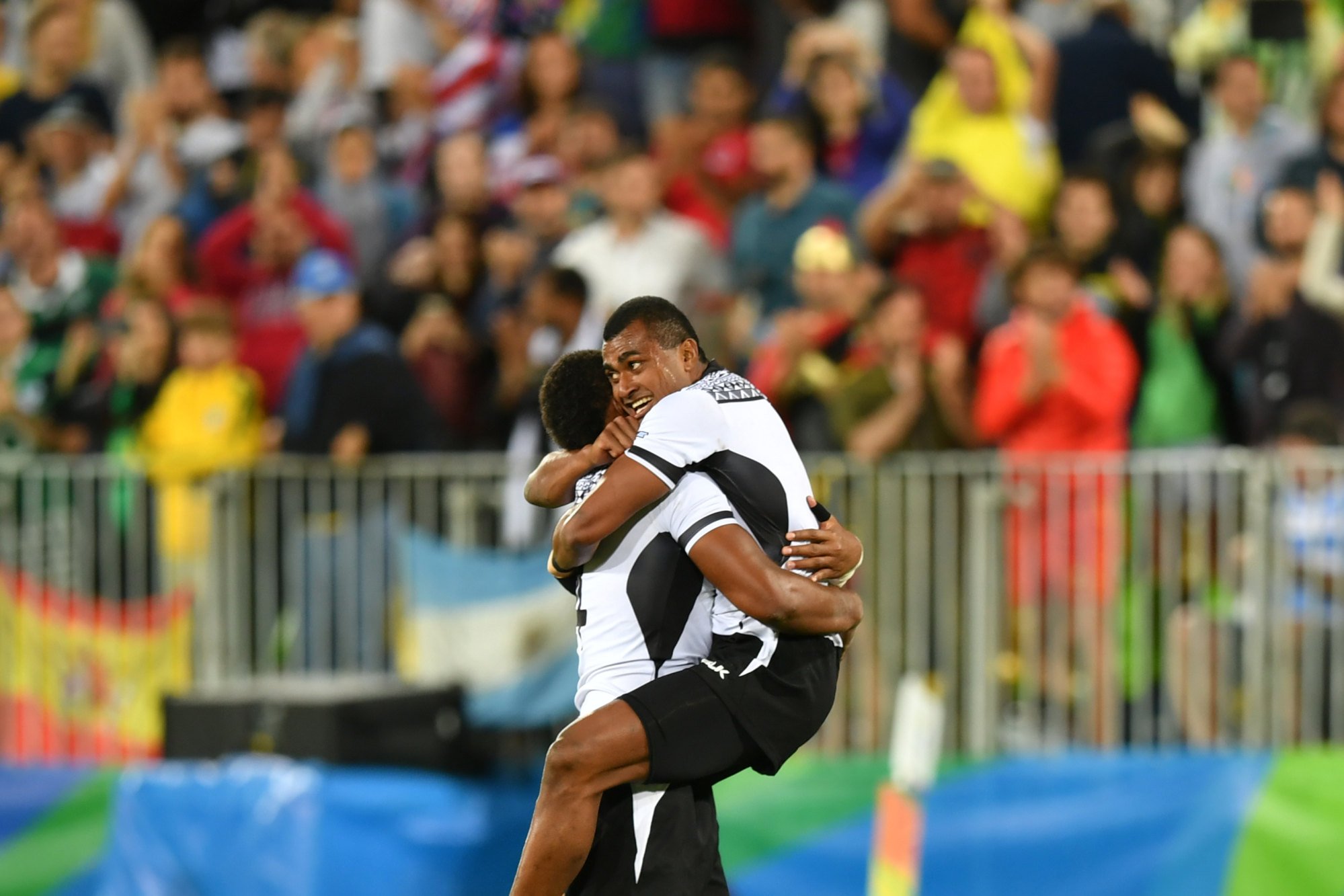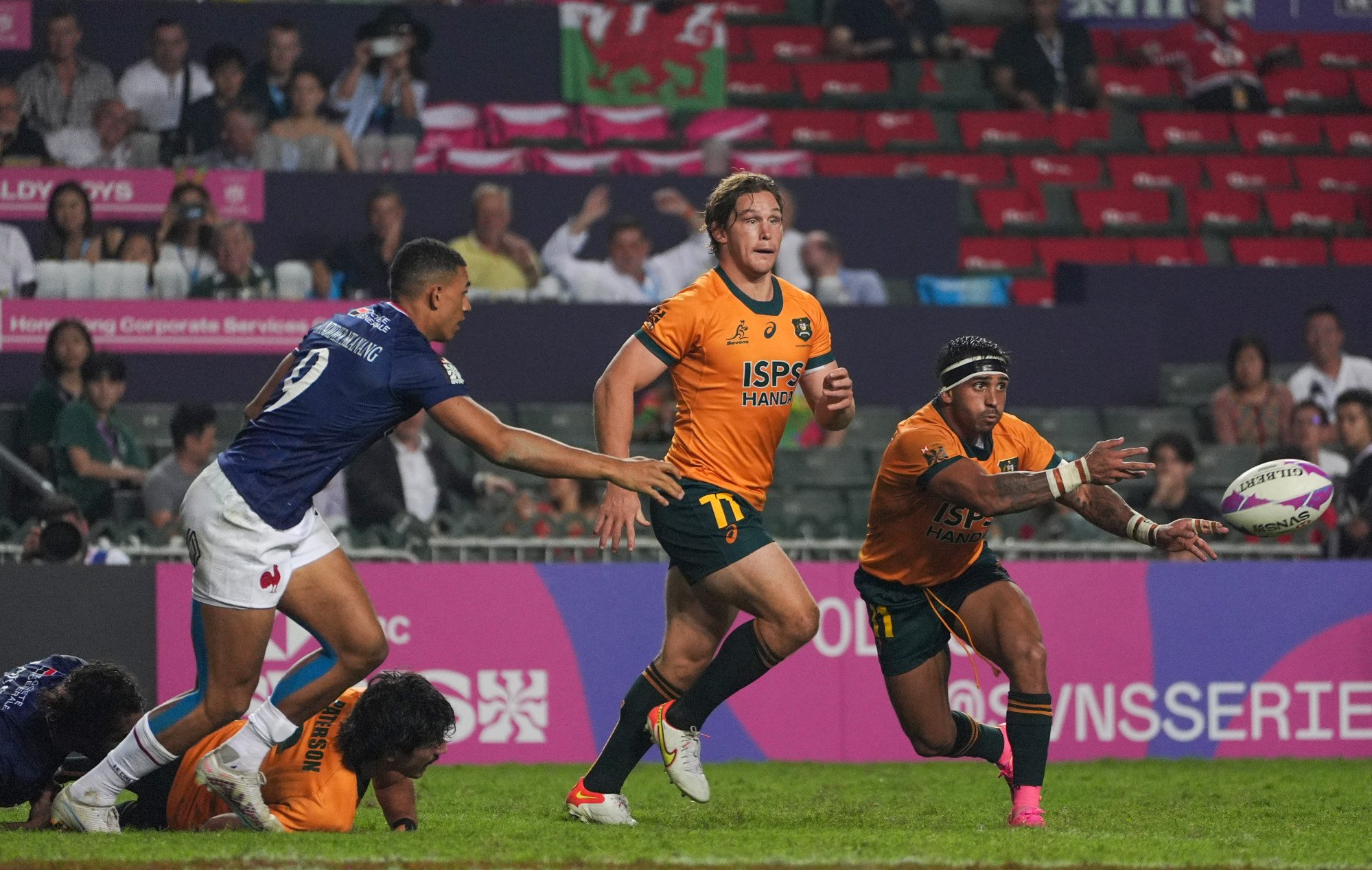
Hong Kong Sevens 2024: World Rugby chief Alan Gilpin says ‘more work to do’ before move to Kai Tak in 2025 is confirmed
- He says there is ‘a lot of confidence’ in talks about the move in 2025 for the tournament, which is ‘definitely back’
- Also under review is the series format, which this year was in line with the Olympics but could change for next year’s event
World Rugby chief Alan Gilpin said Hong Kong, “the jewel in the sevens crown”, was “definitely back” following a heady three days on and off the field.
A large slice of the narrative around this year’s 47th edition has centred on the tournament saying goodbye to its celebrated Hong Kong Stadium home.
However, the sport’s CEO said there was “more work to do” before the global governing body could “fully confirm” the proposed 2025 move to Kai Tak Sports Park.
“We have been talking about Kai Tak for a few years, working with the local government and the Hong Kong, China union,” he said.
“I think there is a lot of confidence around it … we all want to [confirm the 2025 plans] quickly so the dates and the stadium are locked in, and the fans can start to understand how to go about accessing [the tournament].”

Gilpin oversaw the introduction of a revamped elite sevens series for 2023-24. The ongoing HSBC SVNS features the world’s best 12 teams, in the men’s and women’s games – playing eight tournaments around the globe.
An overall table after stop seven in Singapore next month will determine the league winners. The subsequent closing event in Madrid serves as a grand finals, where the leading eight sides vie to become series champions, and the bottom four enter a relegation playoff with the top four teams from the second-tier Challenger Series.
It is unlikely, however, that many of the 100,000-plus watching over the past three days gave any thought to how results were affecting the wider series context.
Gilpin said the format change, motivated by a wish to replicate the Olympic Games sevens competition, was under constant review.
“A lot of that has been talking to the teams … what worked for them and where we can improve,” Gilpin said.

“We are talking to the host cities, especially the likes of Hong Kong and Dubai, that are hugely established. This year has been slightly different, because, in addition to giving fans the best experience, we wanted a format to prepare teams for a spectacular Olympic Games.
“We do not have to consider the Olympics [in 2025], and after Madrid, we want to be in a position to say what next season looks like.
“There are some great rivalries at the top of the table, and real jeopardy at the bottom. It is new to people, and as we get to Madrid, and talk about it more, people will understand better why the jeopardy is there. It is not only to make a great product, but to make sure there is a pathway to the top for every country.”
Sevens made its Olympic debut in 2016, and in Paris from July 24 will feature for the third time. Los Angeles was chosen to host a world series leg this year, in advance of staging the 2028 Games.
“[Olympic inclusion] has been massive – we know funding is available to national governing bodies that would not be there but for the Olympics,” Gilpin said.
“Paris will be our big platform, and a coming of age for rugby sevens in the Olympics. We feel like a proper Olympic citizen, and that allows us to continue driving funding into the elite end of sport, as well as giving kids around the world more opportunities to play.”

A steady trickle of Test players are transferring to sevens, with former Australia captain Michael Hooper playing in Hong Kong, after Antoine Dupont inspired France to their first tournament win for 19 years in LA last month.
“Since we came into the Olympic world, we have been talking about how to create an environment where the bigger names from 15s cross to sevens,” Gilpin said.
“It is important because it builds sevens’ profile. But it is hard, because of the calendars, for players to play both. However important the profile they bring, though, we are really passionate about the fact that all these seven players should be superstars.
“We have some of the best athletes in any sport in the world, and the Olympics will shine a light on them.”

